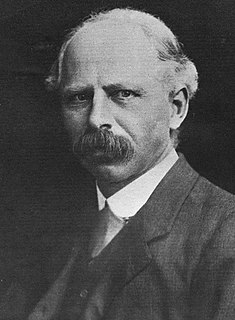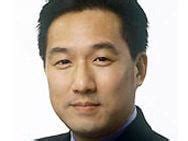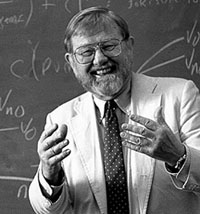A Quote by Ludwig von Mises
The state is the only institution entitled to apply coercion and compulsion and to inflict harm upon individuals. This tremendous power cannot be abandoned to the discretion of some men, however competent and clever they may deem themselves. It is necessary to restrict its application. This is the task of the laws.
Related Quotes
The function of State coercion is to override individual coercion, and, of course, coercion exercised by any association of individuals within the State. It is by this means that it maintains liberty of expression, security of person and property, genuine freedom of contract, the rights of public meeting and association, and finally its own power to carry out common objects undefeated by the recalcitrance of individual members.
We established however some, although not all its [self-government] important principles . The constitutions of most of our States assert, that all power is inherent in the people; that they may exercise it by themselves, in all cases to which they think themselves competent, (as in electing their functionaries executive and legislative, and deciding by a jury of themselves, in all judiciary cases in which any fact is involved,) or they may act by representatives, freely and equally chosen; that it is their right and duty to be at all times armed.
The constitutions of most of our States assert, that all power is inherent in the people; that they may exercise it by themselves, in all cases to which they think themselves competent, or they may act by representatives, freely and equally chosen; that it is their right and duty to be at all times armed; that they are entitled to freedom of person, freedom of religion, freedom of property, and freedom of the press.
Though this motion for a new trial is an application to the discretion of the Court, it must be remembered that the discretion to be exercised on such an occasion is not a wild but a sound discretion, and to be confined within those limits within which an honest man, competent to discharge the duties of his office, ought to confine himself. And that discretion will be best exercised by not deviating from the rules laid down by our predecessors; for the practice of the Court forms the law of the Court.
Physical science enjoys the distinction of being the most fundamental of the experimental sciences, and its laws are obeyed universally, so far as is known, not merely by inanimate things, but also by living organisms, in their minutest parts, as single individuals, and also as whole communities. It results from this that, however complicated a series of phenomena may be and however many other sciences may enter into its complete presentation, the purely physical aspect, or the application of the known laws of matter and energy, can always be legitimately separated from the other aspects.
A single assembly will never be a steady guardian of the laws, if Machiavel is right, when he says, Men are never good but through necessity: on the contrary, when good and evil are left to their choice, they will not fail to throw every thing into disorder and confusion. Hunger and poverty may make men industrious, but laws only can make them good; for, if men were so of themselves, there would be no occasion for laws; but, as the case is far otherwise, they are absolutely necessary.
Never have anything to do with an unlucky place, or an unlucky man. I have seen many clever men, very clever men, who had not shoes to their feet. I never act with them. Their advice sounds very well, but they cannot get on themselves; and if they cannot do good to themselves, how can they do good to me?
If the state, with all of the emotional resources at its command, cannot finance its most basic and vital activities without resort to compulsion, it would seem that large private organizations might also have difficulty in getting the individuals in the groups whose interests they attempt to advance to make the necessary contributions voluntarily.

































